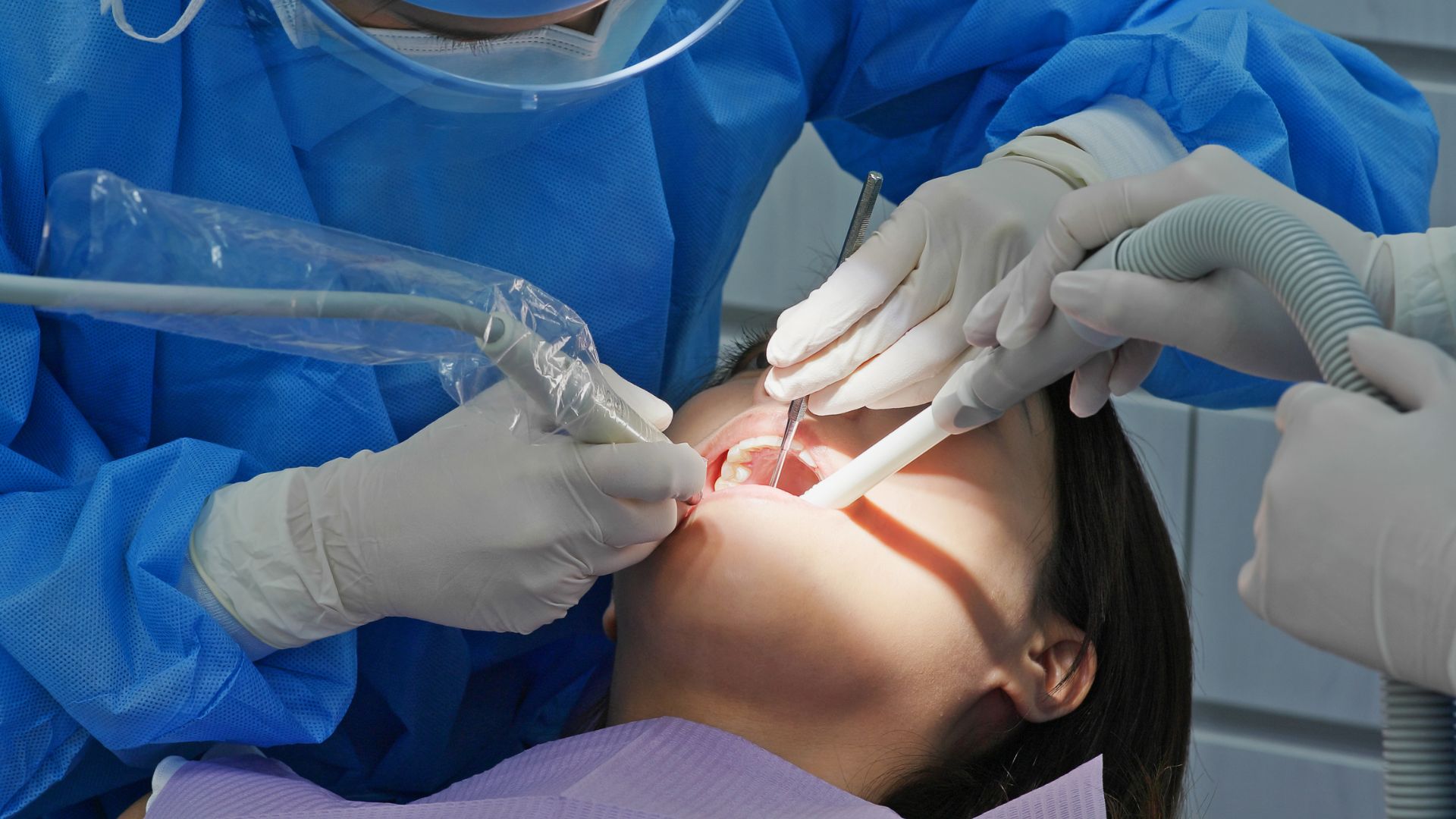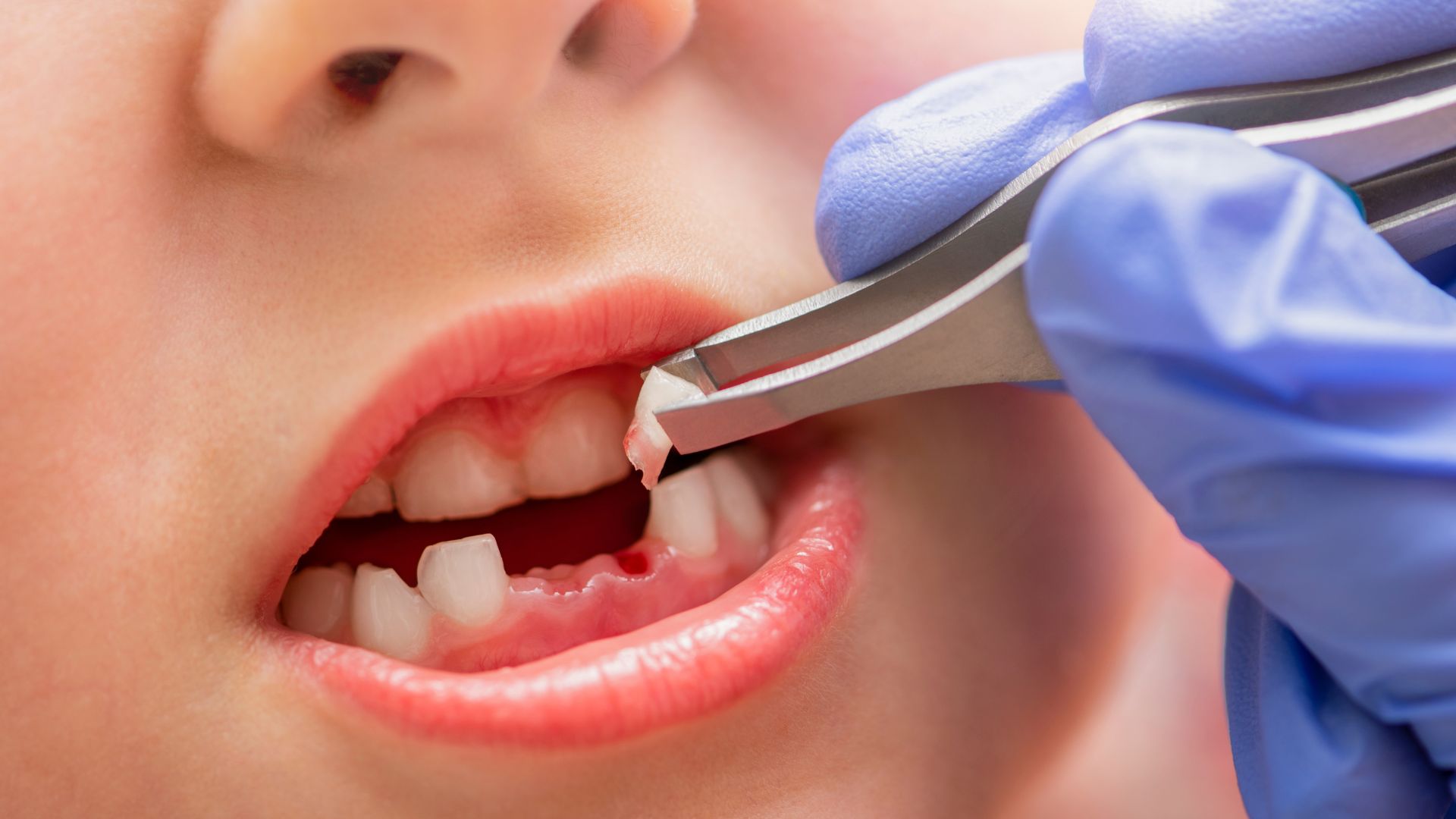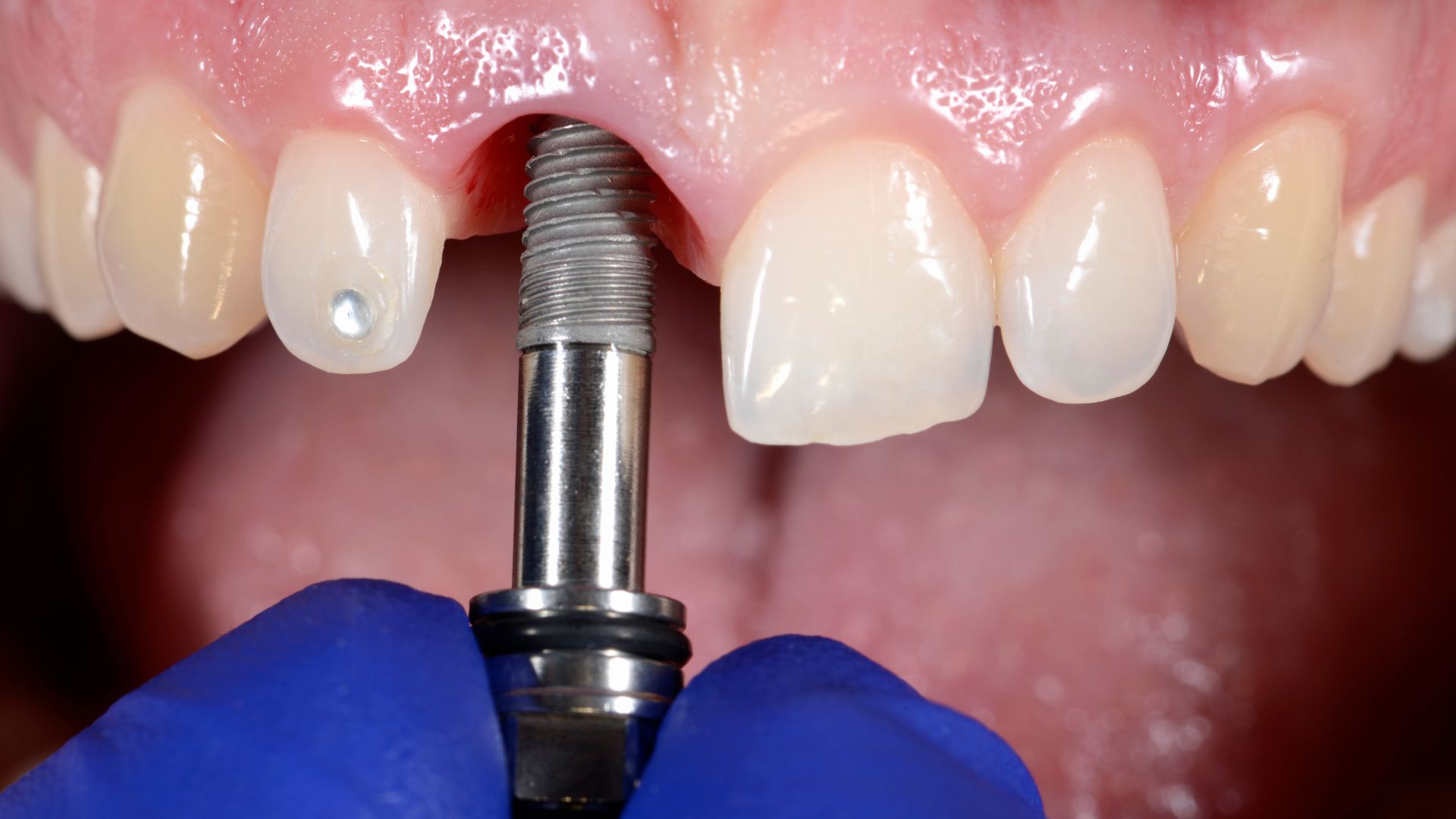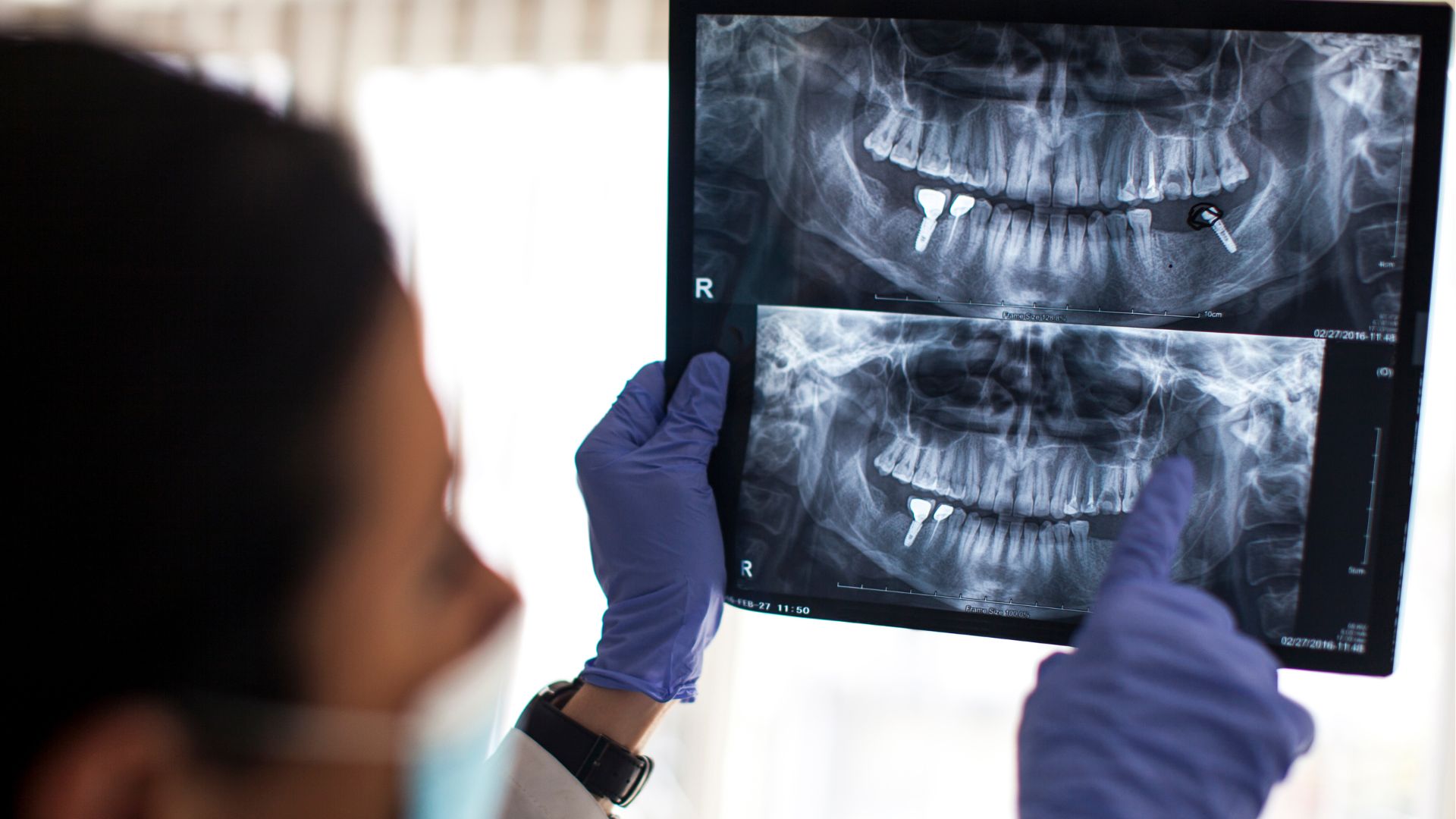Distinct Roles of Dental Teams
Though they may wear similar white coats or scrubs, the different professionals in the dental industry serve distinct roles. We will compare the difference between a dental surgeon, an orthodontist and an oral surgeon to clarify which dental care professional can help you best.
General dentists are trained as dental surgeons in Singapore. They are your first line of defence in addressing common oral health concerns with clinical efficiency. If they encounter an issue they are not equipped to resolve, they may refer you to a specialist, like an oral surgeon or orthodontist.
Oral surgeons diagnose and manage any pathology of the mouth and jaws that necessitates surgery. But what are these operations? Many general dentists conduct oral surgery, such as a dental extraction, which is considered oral surgery. On the other hand, oral surgeons undertake more complicated mouth procedures. They are trained specifically in surgical procedures of facial, jaw and complex dental conditions so they can easily perform intricate operations.
Beyond that are maxillofacial surgeons who specialise in mouth, jaw, and face surgeries. They address a wide range of conditions, from corrective jaw surgery to facial trauma repair. They are trained both as dentists and as medical doctors and can treat conditions relating to the head and neck.
Lastly, orthodontists are dentists who are trained before acquiring additional skills. They specialise in diagnosing, preventing, and treating dental and facial irregularities through braces, aligners, and other specialised equipment.
Dental Surgeon vs Orthodontist

Both dental surgeons and orthodontists are trained as dentists before they advance into their respective fields, but their focus differs. Their practice can include many procedures, from tooth extractions to dental implants.
An orthodontist, on the other hand, focuses on correcting teeth and jaws that are positioned improperly. They are specialists in diagnosing, preventing, and treating dental and facial irregularities, such as malocclusions (bad bites). Orthodontists design and apply braces, retainers, and other appliances to improve the alignment of teeth and jaws, enhancing function, appearance and overall oral health.
The choice between visiting a dental surgeon or an orthodontist depends on the issue. A dental surgeon can be visited for general dentistry and surgical needs, including extractions or treatments involving the bones and tissues of the face and mouth. If a patient’s case is particularly complex or severe — for example, severe bite issues, skeletal discrepancies, or complex tooth movements — a general dentist might refer them to an orthodontist with additional training and experience in managing such cases.
If you’re interested in cosmetic dentistry options, like Invisalign clear aligners, our dental practitioners at TEETH @ Tiong Bahru are certified to offer treatments for correcting teeth. Understanding these differences helps patients seek the appropriate care for their specific dental issues, ensuring targeted, effective treatment. If you’re ever confused, feel free to contact our dental team to ask which provider is right for your condition.
Dental Surgeon vs Orthodontist
A dental surgeon and an orthodontist both play essential roles in maintaining and enhancing oral health, but they specialise in different areas and handle distinct types of dental issues.
A dental surgeon specialises in the diagnosis and surgical treatment of diseases, injuries, and defects affecting the mouth, teeth, jaws, and face. Their practice can include many procedures, from tooth extractions and dental implants to corrective surgeries for issues like TMJ disorders or facial trauma. Dental surgeons receive extensive training in surgery and are equipped to perform complex procedures that fall beyond the typical scope of general dentistry.
An orthodontist, on the other hand, focuses on correcting teeth and jaws that are positioned improperly. They are specialists in diagnosing, preventing, and treating dental and facial irregularities, such as malocclusions (bad bites). Orthodontists design and apply braces, retainers, and other appliances to improve the alignment of teeth and jaws, enhancing both function and appearance. Their work often contributes significantly to patients’ self-esteem and overall oral health.
The choice between visiting a dental surgeon or an orthodontist depends on the issue. A dental surgeon is typically required for surgical needs, including extractions or treatments involving the bones and tissues of the face and mouth. In contrast, an orthodontist is the appropriate specialist for issues related to the alignment of teeth and jaws.
While dental surgeons and orthodontists contribute significantly to oral health, their areas of expertise are distinct yet complementary. Understanding these differences helps patients seek the appropriate care for their specific dental issues, ensuring targeted, effective treatment.
Oral Surgeon vs Dentist for Extractions
Though both oral surgeons and general dentists are trained to extract teeth, the decision between the two depends on the complexity of the procedure.
Dentists typically manage straightforward extractions where the tooth is fully erupted and easily accessible. These are routine procedures for issues like decay or to create space for orthodontic treatments.

In contrast, oral surgeons are summoned for more complex cases or if the patient has underlying health conditions that increase the risk of complications. For example, impacted teeth, surgical extractions, or instances involving facial trauma or severe infections fall within their expertise. They have specialised skills and equipment to handle intricate extractions safely and effectively.
Initial consultations with a dentist can help determine the appropriate course of action. The dentist may assess that the extraction may be complicated or beyond the scope of general dentistry. In that case, they will refer the patient to an oral surgeon with the specialised skills and equipment to perform the procedure safely and effectively.
Oral Surgeon vs Dentist for Implants
While both professionals can be involved in the implant process, the selection between a dentist and an oral surgeon is influenced by the specific requirements and complexity of the patient’s case. Here’s a concise overview of roles when it comes to dental implants:
Many general dental surgeons are trained to perform implant procedures, which are often convenient patient options. They are typically involved in cases where the implant procedure is straightforward, with no complicating factors, handling the entire process, from consultation and planning to the surgical placement of the implants and the fitting of the crowns.

An oral surgeon is often preferred for more complex cases, particularly bone grafts, sinus lifts or patients with underlying health conditions. They have specialised training in surgical procedures and are equipped to handle complicated cases. Oral surgeons focus on the surgical aspect of the implant process and often work in tandem with a restorative dentist who fits the final crowns or dentures.
The decision to go with a dental or an oral surgeon for implants often depends on the individual patient’s needs and the complexity of their case.
A thorough evaluation, including X-rays and health assessments, is conducted to determine the appropriate professional for the procedure. Patients with straightforward needs might have their implants done by a dentist, while those requiring specialised care or complex surgical interventions would be referred to an oral surgeon.
When Do You Need a Dental Surgeon or Oral Surgeon
If you’re facing a dental issue, one of the first questions that might cross your mind is whether to seek help from a dental or oral surgeon.
Dentists are more than skilled at handling general dental care, including common problems like cavities, gum disease, and regular check-ups. They can provide treatments like fillings, cleanings, and even more complex cosmetic procedures to keep your smile looking its best.

Sometimes, you may need an oral surgeon instead of a dental surgeon for conditions that affect the entire face and extend beyond the mouth and teeth. For example, in the unfortunate event of facial trauma, whether from an accident or injury, the role of an oral surgeon becomes pivotal. They are trained to handle complex facial reconstructions. The surgeon skillfully repairs broken bones, addresses soft tissue injuries, and ensures that aesthetic and functional aspects of the facial structure are restored.
Oral surgeons also deal with a range of other complex issues. They perform surgeries to correct cleft lips and palates, remove benign or malignant tumours in the oral cavity, and conduct intricate procedures for patients with sleep apnea.
Connect with Our Neighbourhood Dental Clinic
At TEETH @ Tiong Bahru, we take pride in being your neighbourhood dental clinic, seamlessly blending professional expertise with a personal touch. Our dedicated team of dental surgeons is on hand to address both routine and complex issues, ensuring that every patient receives comprehensive, personalised care.
Our dental team is committed to making oral health accessible, approachable and anchored in trust. Your smile is our passion, and at TEETH @ Tiong Bahru, you’ll find not just a clinic but a partner in your journey to optimal oral health. We’re here to ensure that every visit is a step towards a healthier, brighter smile rooted in the highest standards of care and the warmth of community connection.

